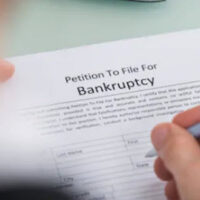Basics of the Trustee’s Role in a Bankruptcy Case

Whether you file a Chapter 7 or Chapter 13 bankruptcy in the Eastern, Middle or Western District of Pennsylvania, the United States Trustee’s Office, a part of the United States Department of Justice, will appoint a third party to the bankruptcy case, known as the bankruptcy trustee. The ultimate job of the Trustee is to manage and oversee the case. The Office of the United States Trustee appoints your bankruptcy trustee to oversee the bankruptcy estate and for the administration of your case. This includes whether there are any assets to liquidate in a Chapter7 case or whether enough funds are being paid in a proposed repayment plan in a Chapter 13 case.
In today’s article, we will discuss the bankruptcy estate, the basics of what the trustee does in bankruptcy cases, and the questions the Trustee may ask at a Meeting of Creditors. But first, in order to understand what the Trustee does, we must discuss the bankruptcy estate.
What’s a Bankruptcy Estate?
When a debtor files a bankruptcy petition, this triggers the formation of a legal, separate entity known as a bankruptcy estate. This estate consists of the Debtor’s property and finances (assets and liabilities). This is where the bankruptcy Trustee comes in – to oversee the bankruptcy estate. The bankruptcy estate exists for as long at the bankruptcy case is open. At the conclusion of your bankruptcy case, the bankruptcy estate ceases to exist and your property re-vests back to you.
What does the Trustee Do?
Under the laws of the Bankruptcy Code, the trustee may do the following:
- Distribute funds to creditors
- Ensure paperwork is accurate
- Carefully monitor the case to prevent bankruptcy fraud
- Ask the debtor questions concerning his or her finances
- Conducts the Meeting of Creditors in your case
Types of Questions the Trustee May Ask
The trustee asks questions about a debtor’s finances to manage the case. The trustee wants to ensure that the debtor is truthful in his or her intentions of filing bankruptcy. This line of questioning is performed at what some may call the Section 341 hearing, or more commonly referred to as the “Meeting of Creditors”.
The Meeting of Creditors terrifies many people. Some are concerned what if my creditors show up and ask me questions under Oath. An experienced Lehighton & Carbon County bankruptcy attorney will help his or her client navigate through the Meeting of Creditors with preparation and will stay by the client’s side to ensure the paperwork is accurate as well. Attorney Weaver has experience handling and fielding any imaginable questions that a creditor may pose at the Meeting of Creditors for his clients.
Some of the questions the Trustee may ask at the Meeting of Creditors include:
- Have you filed bankruptcy before?
- Have you listed accurately all of your assets and liabilities?
- Are there any errors or omissions in your filed bankruptcy schedules?
- Do you understand that you have an affirmative duty to amend your schedules and statements if you believe that anything is not scheduled correctly?
- Do you owe child support or any other monthly payments such as alimony?
- What is the reason you filed bankruptcy?
- Are there any creditors present who wish to question the Debtor?
Depending upon the chapter of bankruptcy being filed, the Trustee’s role will differ. For example, if you filed a Chapter 13 Bankruptcy, the Trustee will inquire into whether you should be paying more money to creditors under the Bankruptcy Code. Don’t wait to take control of your finances and manage your debt. The quicker you make your decision that you wish to control your finances and not your creditors or debt collectors, the quicker you will be able to reorganize your financial affairs and putting your hard earned money back into your pocket.
Considering Filing for Bankruptcy in Pennsylvania? Contact a Bankruptcy Attorney Today.
If you’re in a situation where creditors are calling you day and night and you cannot repay your debts, filing for bankruptcy is a viable option for you. Because bankruptcy laws are confusing and extremely complex, a petition should not be filed alone as there are many pitfalls one may unknowingly take resulting in property being sold unnecessarily or a discharge being denied. Lehighton & Carbon county bankruptcy attorney Adam Weaver can help you explore all of your bankruptcy options to choose the best one for you. Attorney Weaver will thoroughly explain the bankruptcy process and identify your needs with a cost-effective approach. Call 570-818-4888 or contact our Office online for a consultation.
Resource:
justice.gov/ust/bankruptcy-fact-sheets/overview-bankruptcy-chapters
https://www.weaveresq.com/how-to-decide-if-chapter-7-bankruptcy-is-best-for-you/
